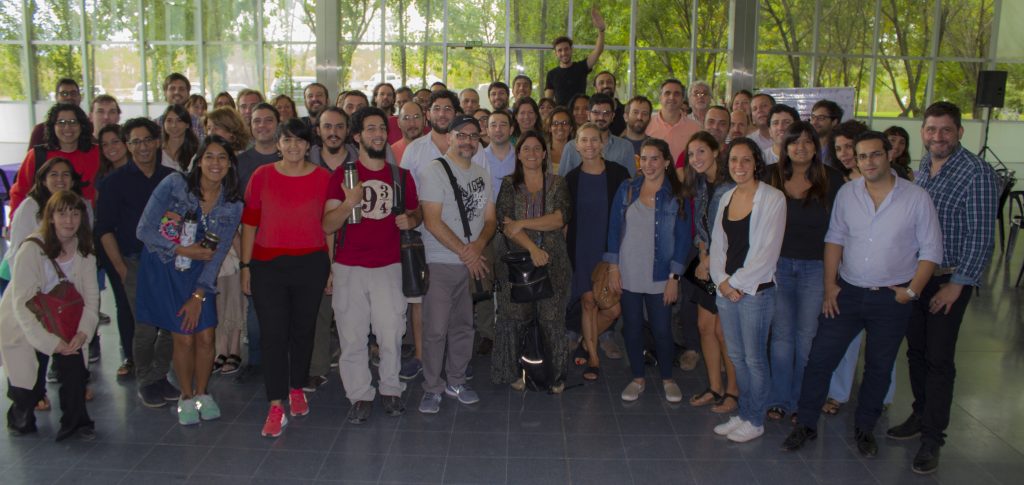Open data is not familiar with weekends! However, on Saturday, March 4th, 2017, public officials, civil society organisations, civic hackers and many interested citizens came together in Vicente López to share projects and ideas around open data. In this event, the community also began to discuss the present and future of open data in Argentina.
This year we focused the event on the topic of open data in local governments. We did so in different ways: Panels, roundtables, lightning talk and the development of the “Open Data Agenda 2017” of Argentina.
We started in the morning with a panel to think and debate the different ways of advocating for an Open State. We wanted to overcome the notion that open government only serves the executive branch, and that it is relevant to the judicial and legislative branches as well. In this panel, we had Gonzalo Iglesias, the national director of public data and information, Karina Banfi, National deputy for the province of Buenos Aires and Mariano Heller, the secretary of the council of judiciary. The Panel was moderated by Agustin Frizzera, the director of Democracia en Red.
In mid-morning, we held another panel on how open data can strengthen citizenship. Data can help to inform and to approve the way we make decisions, and in the case of the private sector, it can help to generate economic development.

This panel included Agustina de Luca, Transparency manager in the foundation Directorio Legislativo, and Paula Moreno Frers, who works at content development at Here Technologies, a company that uses open data to improve their maps. Agustina stressed in the panel the importance of open data to achieve the objective of the Sustainable Development Goals (SDG).
The event did not ignore the growth of local open data portal in the past year. In this sense, the third panel had participants from Pilar, Tigre, Cordoba and Villa Maria. The panellists share their best practices in local open government and open data. Likewise, they presented the challenges in opening up internally and externally. On the one hand, it is important to have legitimacy from within the system to have a process to open up data. On the other hand, when being external facing, it is also important to have a stable portal that promotes re-use of data by the society. This includes useful visualisations, good search engines and relevant information.
After lunch, we had round tables to define Argentina’s open agenda for 2017. We discussed subjects such as:
– The importance of opening data in national and local government
– What data is important to citizens
– The development of open source software as a way to promote transparency
-The possibility to create data journalism from open data
– The linkage between open data and SDG
-Gender equality
– How to build economic development from data
At the end of the day, we had lightning talks with experts in the field that presented different open data projects. For example – the local open data index in Argentina for 2017, a ranking for the local open data portals in Argentina, the transparency portal of the river Cuardo and the projects datos abiertos melendez and “Aquí estamos, mapa del #8M”.
Open Knowledge Argentina (Fundación Conocimiento Abierto) aims to help develop innovative mechanisms to generate a participatory society, and achieve open government action models for transparency, accountability, access to information and opening data. Visit their website at https://www.fcabierto.org/









How can we get a panel on Open Data in Education on the agenda for the IODC in 2018? This was missing at the last conference in Madrid. I’m thinking of the example like of an app developed to engage Argentina youth: Impact Series: Improving Open Data Literacy in Argentina
The project was supported by “the Open Data for Development (OD4D) programme, a partnership funded by Canada’s International Development Research Centre (IDRC), the World Bank, United Kingdom’s Department for International Development (DFID), and Global Affairs Canada (GAC).”
The ODI and Eidos team publishing a “How-to” guide “so mentors and teachers elsewhere in the country can deploy the same activities in their own classrooms.”
In Ontario’s secondary and postsecondary sectors we are doing similar work.
It would benefit knowing about other secondary and postsecondary activities involving Open Data literacy around the globe.